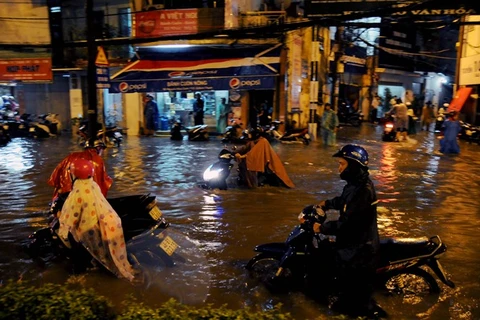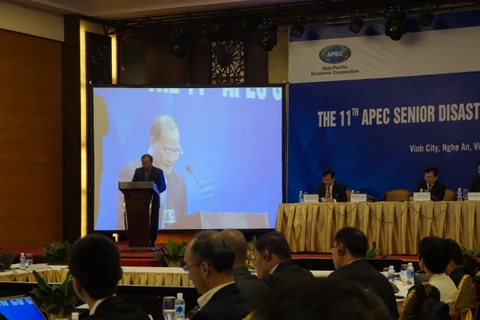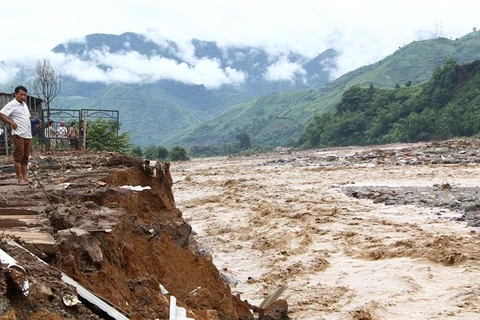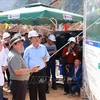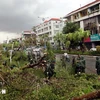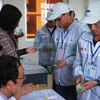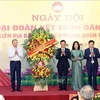 Officials inspect flood prevention in Vinh Chau A, Tan Hung district, Long An province. (Source: VNA)
Officials inspect flood prevention in Vinh Chau A, Tan Hung district, Long An province. (Source: VNA) Hanoi (VNA) – The Ministry of Labour, War Invalids, and Social Affairs (MoLISA) held a consultation workshop in Hanoi on August 27 to look into risk-informed and shock-responsive social protection in Vietnam.
A study on risk-informed and shock-responsive social protection in Vietnam has been conducted under the management of the International Labour Organisation (ILO). It was run under a project chaired by the UN Food and Agriculture Organisation (FAO) and implemented in four Southeast Asian countries, namely the Philippines, Cambodia, Myanmar, and Vietnam.
In Vietnam, the study was carried out from March 31 to April 15, 2018 at the MoLISA; the Ministry of Agriculture and Rural Development; and the provinces of Lao Cai in the north, Nghe An in the central region, and Ca Mau in the south. It surveyed local residents and government workers whose jobs are relating to disaster risk reduction, social protection, and humanitarian activities.
Vietnam is among those countries seriously affected by climate change, especially considering that 71 percent of its population and 59 percent of its land mass are vulnerable to natural disasters. The country also loses about 1-1.5 percent of its GDP due to natural disasters every year.
Low-income and vulnerable groups are affected more as their incomes largely depend on weather and housing conditions, while they also lack access to saving accounts and credit in times of need.
Comprehensive and effective social assistance is a strong tool to boost resilience to disasters, which must come with helping those affected create and diversify their means of livelihood and deal with long-term climate change impacts, participants said at the workshop.
The study pointed out some of the advantages and difficulties in completing policies on risk-informed and shock-responsive social protection in Vietnam. The policy system was stipulated in the Government’s Decree No.136/2013/ND-CP. The country’s socio-economic development plan for 2016-2020 has also stressed the need to improve and better coordinate policies and actions pertaining to climate change, disaster risk, natural resources, environmental protection, and land use.
However, coverage in the decree remains limited. Resources for policy implementation still mainly rely on the state budget and are not enough for handling disaster consequences. While emergency social assistance is assessed as not timely, suitable, nor sufficient, cumbersome administrative procedures have also hampered aid provision, according to the study.
The study recommended policies and legal regulations on social protection be fine-tuned regularly, with their focus switched from response to prevention; a social assistance system for emergencies be completed; and financial strategies be developed.
Some participants at the event said that as natural disasters remain complicated and unpredictable, the communication staff needs to be further consolidated, and appropriate resources should be invested in infrastructure and equipment for disaster prevention. They also called for stronger coordination among all-level authorities, sectors, and domestic and international organisations in this work.–VNA
VNA
